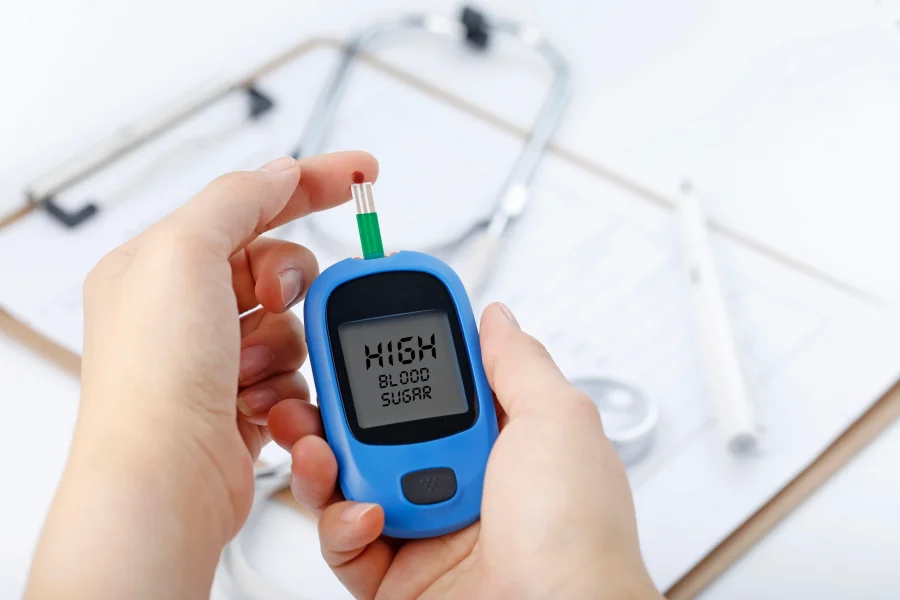Introduction
Too much stress can disrupt your whole life both physically and mentally; and for people living with diabetes it is not just the emotions that get affected, with stress comes a huge load of issues that eventually become very difficult to manage. That is why learning the effects of stress can help you deal with it better and make sure it does not affect you as a diabetic individual.

Can Stress Affect Diabetes?
Stress can affect diabetes in unexpected ways. Having little or no medical knowledge about the subject can make it worse if you are not aware early. Stress can cause mood changes, which may affect blood sugar. If not managed, this may increase your chances of developing Type 2 diabetes over time or make it harder to control if you already have it. Dr. Gerald Shulman, MD, PhD, a diabetes researcher and co-director of the Yale Diabetes Research Center, says ‘Severe stress has long been known to promote insulin resistance and increase blood sugar.’
It also works the other way round. If you have diabetes, you may feel more stressed and anxious compared to those who don’t. In this article you will learn how stress can be managed as someone living with diabetes.
Recognizing Diabetes Stress Symptoms
Recognizing the diabetes stress symptoms means you have won half the battle already. You may experience:
- Physical Stress: Physical signs like headaches, fatigue and muscle tension.
- Emotional Stress: Some emotional signs might include irritability, anxiety and mood swings.
- Change in Routine and Behavior: Behavioral changes involve changes in eating patterns, sleep problems, and social withdrawal.
Overtime, too much cortisol can cause insulin resistance and stress therefore can raise blood sugar, so it is very important to watch for classic symptoms of high blood sugar, like feeling unusually thirsty and urinating more often. If you feel that, you are under stress keep an eye on all the important health parameters.
Tracking Stress and Blood Sugar Patterns
Regularly tracking your stress levels and blood glucose readings is very important. It will help you identify patterns and connect the dots on your own or by sharing them with your doctor. Stress can be tracked through various apps available on the Play Store and App Store. Blood glucose can be tracked with glucose monitoring devices or wearable Continuous Glucose Monitor (CGM) devices. Don’t get overwhelmed. Your doctor or even a quick online search can help you navigate through stress.
Healthy Ways to Manage Stress and Diabetes
1. Be Kind to Yourself
Living with a condition like diabetes can be challenging. The first thing you ought to do is give yourself some room to relax mentally and be kind to your physical and emotional self no matter what the situation is. Kindness allows you to treat yourself with compassion and helps in any situation. Learn to forgive yourself for missed targets and be thankful for all the good things in life.
2. Focus on What You Can Control
It’s understandable to feel stressed if you have diabetes, but focusing on things you can’t control will only make it worse. Therefore, it’s important to focus on things you can control. Eat well and on time, sleep well, take your medicines on schedule, move your body regularly, take walks, journal. If anything worsens, reach out to your doctor instead of analyzing it repeatedly.
3. Exercise Regularly to Reduce Stress
Exercising regularly is one of the easiest ways to reduce stress and blood sugar naturally. It’s something you can control. Any type or form of exercise can help you feel better. Physical activity releases endorphins, also known as feel-good hormones, which boost your mood and make you feel good instantly. If you feel unsure where to start, just search ‘aerobics exercises’ on YouTube, and you’ll find plenty of videos to follow.
4. Practice Relaxation Skills
Both mental and physical relaxation is equally important. Practice deep breathing techniques, body relaxation, yoga and more. The basics are simple: sit quietly, close your eyes, inhale, hold for a few seconds, exhale and repeat. This will give you an instant pause and help calm your mind. Apart from meditation, make practicing mindfulness a way of life. Try to be present in each moment, and if your mind wanders to the future or the past, bring it back to the present by focusing on your surroundings and your breath.
5. Seek Professional Help When Needed
When you start noticing unusual patterns or any new changes in your body, consult your doctor immediately. Don’t wait, and please avoid doing in-depth research on your own unless you are qualified or certified. Overanalysing any condition or health concern by yourself can do more harm than good.
Ask about Cognitive Behavioral Therapy (CBT)
Cognitive Behavioral Therapy (CBT) is a therapy to help manage negative, anxious, or depressive thoughts. It is provided in a structured way by certified therapists or psychologists. You can reach out to a therapist and ask for CBT if your negative or anxious thoughts feel out of your control. They help you overcome these thoughts by teaching frameworks that you can use in your daily life.
Try Mindfulness-Based Stress Reduction (MBSR)
Mindfulness-Based Stress Reduction (MBSR) is a technique to help manage negative, anxious, or depressive thoughts, high blood pressure, and more, by keeping mindfulness at the center. For example, when you eat and focus only on eating without thinking about anything else, you are being mindful and present in the moment. But if you are constantly thinking about the past, future, or things unrelated to the present moment, you are either stressed or excited and not fully present. MBSR uses mindfulness as a tool to reduce stress.
Join a Diabetes Support Group
Often, someone who has gone through a similar experience can support your healing more effectively than a medical professional heals. Knowing that you are not, the only one going through it can help bring things in perspective. Connecting with others who are going through the same thing as you helps, because together you can share and help each other navigate through the problems you face. There are diabetes support groups where people with diabetes come together, share experiences, ask questions, seek help, and support each other.
Additional Stress-Busting Activities
Walking in a park, running, dancing, stretching, practicing yoga, talking to a friend, playing with a pet, doing a hobby you enjoy and other activities can all help reduce stress.
Listen to Calming Music
Light, calm music, such as sleep music or nature sounds, has a calming effect on the mind and body. Calming music is often recommended by professionals for insomnia to help them fall asleep more easilySimilarly, if your mind is calm, balanced, and relaxed, your blood sugar can stay under control and may even decrease if you have type 2 diabetes. You can find many free playlists on streaming platforms.
Limit News and Social Media Consumption:
Constant exposure to news and social media can lead to stress, anxiety, and even fear—especially when it’s filled with negative or overwhelming content. Take breaks from screens, set time limits on social apps, and focus on consuming content that brings you joy, calm, or knowledge. Protecting your mental space helps you stay focused on your well-being and diabetes management.
Try Guided Imagery
Guided imagery is a technique where you imagine positive and peaceful scenes, such as nature, using all your senses to help you feel calm and relaxed. It can be done with the help of a therapist or a recording. This practice can help you feel light, calm and lower your anxiety, which can improve blood sugar control, manage blood pressure and support overall well-being.
Explore Aromatherapy
Aromatherapy is a healing treatment that uses essential oils (natural plant extracts) to improve health. It can help reduce anxiety and improve sleep quality.
Make Time for Hobbies and Social Connections
Even if you are very busy with work, family, or other responsibilities, you need to make time for your hobbies and social connections. A hobby can be anything, from dancing, painting, and cooking to golfing, playing cricket or stargazing. Meeting new people and maintaining social connections helps you stay aware of what’s happening in the world, gives you new experiences and ultimately makes you happier, which leads to a better life.
Practice Gratitude for Better Mental Health
We are often less grateful for the things we have, which can lead to depression, feeling low, and other negative emotions. Practicing gratitude and appreciating what you have uplifts positivity in your life, improves your mood and supports overall mental health. Say thank you often for the things you have or receive.
Key Takeaways
As someone living with diabetes, being under stress can feel overwhelming. But anyone can overcome stress through simple lifestyle changes. Recognising symptoms of stress is half the battle won, and the other half is won when you realise that stress cannot defeat you, it is something you can easily overcome by making small changes.
Frequently Asked Questions
Yes, stress is known to increase blood glucose levels, especially during pregnancy. Research shows that anxiety and depression can also affect blood sugar control.
Yes, stress can cause insulin resistance by increasing cortisol levels also known as stress hormones. These stress hormones make the body less responsive to insulin, which is necessary for glucose to enter the body and be used for energy.
Yes, excessive stress can make it harder for your body to use insulin and manage blood sugar. Stress has many effects and one of them can lead to the development of diabetes or make it worse.
Just keep reminding yourself that diabetes is a manageable condition and many people live well with it. Exercise daily, eat healthy, stay mentally fit, find support groups and consult a doctor if needed.





 1800-270-7000
1800-270-7000













